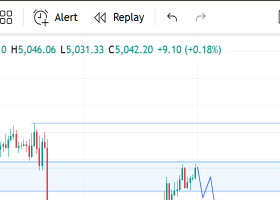The European Union's struggle to avoid a period of falling consumer prices suffered a setback in September, as the annual rate of inflation across the bloc's 28 members fell to its lowest level in five years.
The EU's statistics agency Thursday confirmed that across the 18 countries that share the euro, consumer prices rose by just 0.3% in the 12 months to September, the lowest annual rate of inflation since October 2009, and down from 0.4% in August. That confirmed a preliminary estimate released at the end of last month.
But a more comprehensive set of figures showed consumer prices across the EU as a whole rose by 0.4% from September 2013, slowing from a 0.5% rise in the previous 12-month period, and the lowest annual rate of inflation recorded since September 2009.
The figures showed that eight of the EU's members recorded a decline in consumer prices over the 12 months, with five of those being members of the eurozone: Greece, Spain, Italy, Slovenia and Slovakia. The three EU members that don't use the euro and which suffered the same fate were Bulgaria, Hungary and Poland.
The figures will likely cement investors' fears about the growing threat of deflation--or a self-reinforcing fall in consumer prices--in Europe, concerns that have contributed to recent declines in asset prices around the world.
With inflation so low, it wouldn't take much of a shock--such as weakness in Germany's economy or geopolitical tensions in nearby Ukraine--to tip the whole region into a deflationary downturn.
European Central Bank President Mario Draghi acted against deflation risks in June and September, pushing the central bank to slash interest rates to record lows each time--including a negative rate on bank deposits at the ECB--and unveiling new bank-lending and asset-purchase plans for asset-backed securities and covered bonds.
But there is little consensus for more-dramatic measures--the kind of monetary stimulus the Fed, the Bank of England and the Bank of Japan have deployed--namely large-scale purchases of government bonds to raise the money supply.
There was a small sliver of good news in Thursday's figures. In its preliminary estimate, Eurostat had calculated that the core rate of inflation for the eurozone--which strips out volatile items such as energy and food--had fallen to 0.7% from 0.9% in August.
Speaking in his monthly press conference, Mr. Draghi acknowledged that was a worry, since it indicated the downward pressure on prices had spread beyond food and energy and may increasingly reflect weak domestic demand. But Eurostat Wednesday raised its estimate of core inflation to 0.8%.
Other figures released by Eurostat pointed to a weakening of domestic demand in August. Although the eurozone's trade surplus widened to 9.2 billion euros ($11.68 billion) from EUR7.3 billion in August 2013, seasonally adjusted figures showed that was driven by a decline in imports rather than a pickup in exports. Indeed, exports fell 0.9% from July, the third straight month of decline, while imports fell by 3.1%.
The decline in exports is bad news for the eurozone economy, which relied on trade to help stave off a contraction in the second quarter. With high unemployment, low growth in wages and government austerity programs still keeping domestic demand anemic, many businesses have had to look outside the currency area.



